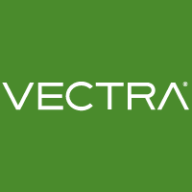

Vectra AI and Check Point Infinity compete in the cybersecurity space, focusing on threat detection and network security. Vectra AI holds an edge in network threat detection by enriching context for incidents, though Check Point Infinity offers a more comprehensive architecture covering various security infrastructure aspects.
Features: Vectra AI integrates multiple alerts into actionable incidents, enhances threat detection across network metadata, and provides enriched context beyond SIEM capabilities. Check Point Infinity offers a unified security infrastructure, covering endpoints, cloud environments, and mobile devices, and provides granular policy enforcement with identity awareness.
Room for Improvement: Vectra AI lacks depth in host-level detail and requires further integration with SIEMs for comprehensive visibility, with ongoing cloud integration development. Check Point Infinity faces challenges with high pricing, complex licensing, and slow technical support for newer cloud features. Both systems could benefit from better integration with third-party tools and enhanced documentation.
Ease of Deployment and Customer Service: Vectra AI focuses on on-premises deployment with hybrid cloud options and is praised for responsive technical support. Its deployment process is smooth due to personalized support. Check Point Infinity provides versatile deployment options, supporting public and hybrid cloud models, though its support could improve in responsiveness for better operational experiences.
Pricing and ROI: Vectra AI's pricing is considered expensive with a complex licensing model based on IPs and environment size, affecting smaller organizations. Despite this, it offers significant ROI through a better security posture and reduced response times. Check Point Infinity also features high costs and complicated licensing, with additional licenses often needed for full functionality, making it more suitable for larger enterprises that can leverage the enhanced security operations for justified expenses.
When I use different Check Point tools, I save support time overall.
The value is in the capacity to protect against problems or attacks with technology, developing and strengthening cybersecurity policies and administration.
I would say we can save about 90% of our budget with Check Point Infinity.
The payback period is roughly six months.
As soon as we raise a ticket, they engage promptly, indicating strong vendor support.
The technical support is excellent with quick response times.
Check Point support is very responsive.
The support is quite reliable depending on the service engineer assigned.
When I create tickets, the response is fast, and issues are solved promptly.
Customer support receives a rating of nine out of ten due to being very supportive and responding quite efficiently.
The Infinity Portal lets us manage on-premises, cloud and edge environments from a single elastic console.
We have not faced any issues with scalability.
Check Point Infinity is scalable because Check Point has a deployment ecosystem with technical support and the quality of the final information from these tools.
Vectra AI is scalable because it can work through different kinds of solutions and is compatible with all kinds of cloud solutions.
Check Point Infinity is a very stable solution; I don't remember experiencing any downtime.
Check Point Infinity is very stable for our company.
Check Point Infinity has achieved a 99.9% block rate on zero-day malware in the 2025 Miercom test.
A more guided setup process or contextual help within the dashboard would make it easier for new team members to get up to speed.
I would recommend having more comprehensive documentation, including a guide for installation and configuration of Check Point Infinity.
I would improve Check Point Infinity by embedding some sort of analytics that indicates which attacks are coming from specific IP addresses very often so that we can block those IP addresses.
ExtraHop's ability to decrypt encrypted data is a feature that Vectra AI lacks.
You need to have a Linux server, and from the Linux server, you must perform AI tasks, and there is a lot to be handled in the back end.
All threats, including hacking attempts, should be comprehensively addressed.
In terms of pricing, I find Check Point Infinity to be an expensive product.
The setup cost or license is very high.
We received a relative discount for this.
Vectra is cheaper in terms of pricing and features compared to Darktrace.
It is very acceptable when you compare it with Darktrace, for example.
Check Point uses robust AI software to detect and recognize all cyber-attacks, giving me the ability to prevent these attacks.
Check Point Infinity has positively impacted my organization by making everything better, including the speed of the network and the security.
We have seen a faster response time and reduced effort from the network and security engineers while going through logs.
Our company used Vectra AI to detect the malicious threats and viruses before they could cause more damage, and we successfully stopped the threats.
Alert noise was dramatically reduced by nearly 80%, allowing SOC analysts to focus more on true threats, which made them more productive and resulted in higher operational efficiency.
There are extensive out-of-box detection capabilities.
| Product | Market Share (%) |
|---|---|
| Vectra AI | 9.8% |
| Check Point Infinity | 1.7% |
| Other | 88.5% |

| Company Size | Count |
|---|---|
| Small Business | 40 |
| Midsize Enterprise | 9 |
| Large Enterprise | 10 |
| Company Size | Count |
|---|---|
| Small Business | 9 |
| Midsize Enterprise | 10 |
| Large Enterprise | 29 |
Check Point Infinity is the only fully consolidated cyber security architecture that provides unprecedented protection against Gen V mega-cyber attacks as well as future cyber threats across all networks, endpoint, cloud and mobile. The architecture is designed to resolve the complexities of growing connectivity and inefficient security. Learn more about Check Point Infinity
Vectra AI is a leader in AI-driven threat detection and response, enabling security teams to effectively pinpoint threats and streamline alert management across network, identity, and cloud environments.
Vectra AI enhances security operations by focusing on high-fidelity threats, facilitating faster incident response across modern infrastructures. It ranks highly among network detection solutions and integrates seamlessly with existing tools like SIEMs and Office 365. Vectra AI is favored in large enterprises, especially in the tech industry, where it aids in threat hunting and compliance.
What are Vectra AI's key features?Enterprises utilize Vectra AI to bolster network security, detect threats, and monitor anomalies, particularly in environments with unmanaged assets. Deployment spans on-premises to cloud infrastructure, ensuring comprehensive geographical and infrastructure coverage with minimal internal effort.
We monitor all AI-Powered Cybersecurity Platforms reviews to prevent fraudulent reviews and keep review quality high. We do not post reviews by company employees or direct competitors. We validate each review for authenticity via cross-reference with LinkedIn, and personal follow-up with the reviewer when necessary.